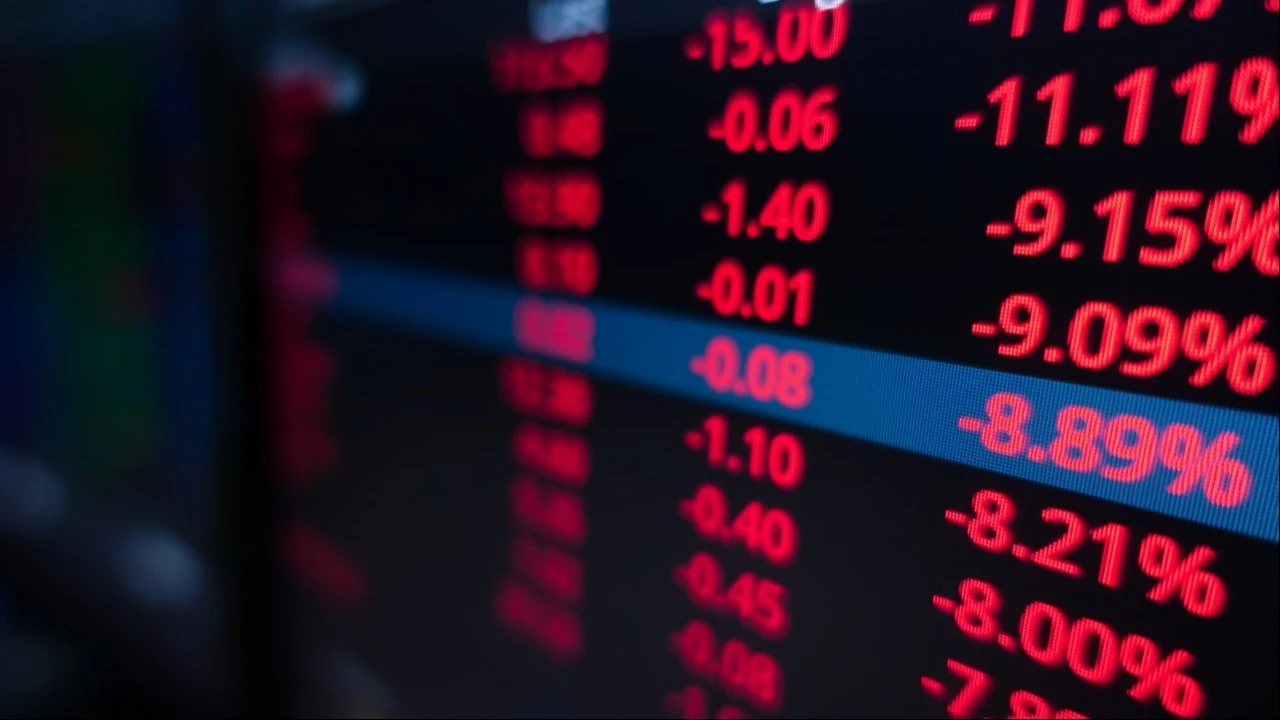World markets went negative: what was the signal for the sell-off?
Investors lock in profits ahead of key Fed signals

World stock markets were under pressure after the sell-off in the technology sector in the US. In Europe, the STOXX 600 index lost 0.26%, in Asia the fall was led by shares of Taiwan and Japan. Investors are taking profits in anticipation of Fed chief Jerome Powell's speech in Jackson Hole and amid pressure on the tech sector.
Details
Global stock markets declined on Wednesday, August 20, after yesterday's sell-off in technology stocks on Wall Street and in anticipation of signals from central banks before the annual symposium in Jackson Hole. Fed Chairman Jerome Powell's speech traditionally has a strong impact on markets.
The pan-European index STOXX 600 lost 0.26%, German DAX fell by 0.7%, British FTSE 100 - by 0.1% amid data on the record inflation for the last year and a half, writes Investing.com. The rise in UK inflation to an 18-month high has increased pressure on the stock market as it raises the likelihood of new moves by the Bank of England.
In Asia, the fall was led by indices of Taiwan and Japan after the securities of chip manufacturers came under pressure, writes Associated Press. Taiwan's Taiex index fell by 3% after shares of the world's largest microchip maker Taiwan Semiconductor Manufacturing Company (TSMC) fell by 3.6%.
Japan's Nikkei 225 fell by 1.5% amid the publication of statistics on microchip exports: in July, they fell by 2.6% year-on-year, stronger than expected, including due to higher tariffs on shipments to the U.S., where exports fell by 10.1%. Shares of key Japanese chipmakers went down: Advantest plummeted by 5.6%, Disco lost 4.7%, Tokyo Electron - 1.5%, Lasertec - 1.9%.
South Korea's Kospi fell 0.7% amid North Korean media reports that incumbent leader Kim Jong-un condemned joint military exercises between Seoul and Washington and promised accelerated development of nuclear forces.
In Hong Kong, the Hang Seng was unchanged, while the mainland Chinese stock market index Shanghai Composite rose 0.8% after the People's Bank of China was expected to keep its benchmark interest rate unchanged. The MSCI Asia Pacific Equity Index (excluding Japan) was down 0.7%.
In commodity markets, oil prices partially recovered the losses of the previous session amid expectations of further negotiations on the end of the military conflict between Russia and Ukraine. Brent rose by 0.8% to $66.3 per barrel, WTI - by 0.7% to $62.8.
What happened on Wall Street
In the U.S., the S&P 500 index fell 0.6% on Tuesday, the third consecutive decline. The Dow Jones added less than 0.1%, while the Nasdaq collapsed by 1.5%. The main pressure on the indices came from leader in AI chips Nvidia, which fell 3.5%. Shares of big data analytics software developer Palantir collapsed 9.4%, the worst performing stock in the S&P 500 index.
Securities of Home Depot, a chain of repair and construction goods stores, looked better than the market, which grew by 3.2% and supported the Dow Jones index. The company reported slightly weaker than analysts' forecasts, but showed revenue growth and confirmed the annual forecast.
In trading on Wednesday, U.S. stocks were also down, with futures on the S&P500, Dow Jones and Nasdaq indices falling 0.1-0.2%.
What is the reason for the collapse of the markets
Analysts attribute the decline, firstly, to increased investor caution before Jerome Powell's speech on Friday, August 22, Investing.com writes.
"We're seeing pretty widespread profit taking, probably driven by risk-off ahead of Powell's speech at Jackson Hole on Friday," said Michael Brown, senior strategist at Pepperstone (quoted in Investing.com).
Secondly, the market is under pressure from the impact of Donald Trump's policies on the technology sector. The US Department of Commerce is now considering the possibility of obtaining stakes in Intel and other chip makers in exchange for grants under the CHIPS Act. This is a law passed to support semiconductor manufacturing in the US and reduce dependence on Taiwan and China. The idea is to give companies subsidies to build factories, Bloomberg notes .
Washington had previously reached an agreement with Nvidia, allowing the sale of H20 chips to China in exchange for 15% of the revenue. H20 is Nvidia's AI chips customized for the Chinese market. U.S. restrictions prohibit the supply of the most powerful chips to China, but the authorities found a compromise: they allowed sales, but the state receives a portion of the revenue.
"Such moves signal an increasingly alarming and interventionist course by the U.S. government," IG analyst Tony Sycamore said in comments to the Associated Press.
This article was AI-translated and verified by a human editor
